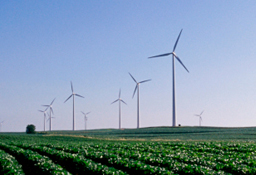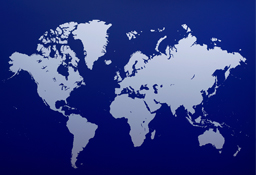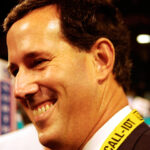The 2012 presidential election dealt with many different national issues. Below are some of the most important items discussed by the presidential candidates.

Focus on the Issues

Immigration
Many immigrants have entered the United States legally, but about 11 million of them have arrived without official permission. Although stricter border controls and the economic downturn have slowed illegal immigration in recent years, most Americans sill view this issue as a serious challenge the country faces.
Some Americans believe that letting illegal immigrants stay in the country undermines respect for the rule of law. They also oppose allowing illegal immigrant workers into the United States when so many Americans are out of jobs. People with this viewpoint sometimes call for illegal immigrants to be deported, or sent out of the country.
Other Americans are willing to grant amnesty, or pardon, to people who are already here illegally, so they can take steps toward becoming citizens. To stop further illegal immigration, some people favor allowing potential immigrants to apply for temporary work permits. This would allow immigrants to earn permanent residence if they learn English, pay back taxes on past earnings, and have no criminal record.

Health Care
Health care has become an important issue in twenty-first century America. Many Americans are concerned about having available, affordable, high-quality health care. The high-cost of health care places an expensive burden on many businesses that provide health care to their employees. Additionally, many Americans are unable to buy health insurance, or afford health care expenses even if they have insurance.
Most Americans agree that health-care reform is necessary. However, they disagree on how to achieve it. Some people favor a government-sponsored health insurance program that would be available to all Americans. They claim this type of insurance would compete with private insurers to help keep health costs low. Other people do not like the idea of a government-funded health care plan for all Americans. Not only would it be costly for taxpayers, they say, but it would be lower quality compared to private plans. Political leaders and the public alike are struggling to find ways to achieve the goal of affordable quality health care for all Americans.

Environment & Energy
The United States is home to about 5 percent of the world’s population. Yet, its factories, homes, and motor vehicles contribute about 20 percent of the world’s atmospheric, or air, pollution.
Most air pollution comes from the burning of fossil fuels such as oil, natural gas, and coal. That produces carbon dioxide, the major greenhouse gas that many scientists say is causing the climate to change. As a result, environmental issues, such as the causes and effects of pollution, often arise in political debate.
Some people feel that the United States must give top priority to protecting the environment in order to insure the well-being of future generations. Others, while expressing concern for the environment, oppose any government-issued environmental safeguards that might place high costs on industry, contribute to job losses, and make the U.S. economy less competitive in world markets.
Whenever the energy issue arises in political discussions people often divide into two groups. One group questions the idea that human actions greatly affect climate change. The United States, this group says, should reduce its dependence on foreign suppliers and step up the production of its own oil, natural gas, and coal resources.
The second group generally accepts human causes for climate change and is devoted to protecting the environment by reducing the use of non-renewable resources. People in this group also want to promote use of environment-friendly energy resources, such as biofuels and solar and wind power.

Social Security Reform
Social Security is considered the nation’s most popular entitlement, or benefit, program. Created during the Great Depression of the 1930s, it had as its original purpose keeping elderly people from becoming poor.
Today, Social Security provides money to about 53 million people who are retired or are disabled. Since its beginning, Social Security has been funded through payroll taxes that employees and employers pay to the government.
In recent years, the Social Security program has begun paying out more in benefits than it has received in tax revenues. Some financial experts believe that, if this trend continues, Social Security funds set aside for future use will be used up by 2036. They also predict that incoming payroll taxes-the other source of Social Security payments will cover only about 75 percent of the benefits owed to seniors.
Some people favor significant changes to the program, such as having younger workers place some of their benefits in private accounts. Other Americans, however, oppose drastic measures as unnecessary. They claim that only small amounts of additional revenue over a period of time would be needed to keep Social Security afloat. As a result, people in this group tend to favor minor reforms, such as changing the way benefits are adjusted for inflation.

Global Affairs
The role of the United States in global affairs is a major issue in the 2012 campaign. Today, the United States is the world’s superpower. Policymakers have to consider how the United States can best promote its global interests and work with other nations around the world.
In the past, the United States has sometimes been criticized by other nations for acting alone or too forcefully. President Obama claims to prioritize cooperation with other nations. Critics of Obama’s policies, however, claim that President Obama often follows, and does not lead, in foreign policy. These critics are concerned that some nations, especially adversaries, see this approach as a sign of U.S. weakness.
Recently, the United States has had some foreign policy successes. In the Middle East, U.S. support has helped a popular movement called the Arab Spring overthrow dictators and push for democracy. The Obama administration also has taken steps to end the Iraq conflict and to begin the withdrawal of U.S. forces from Afghanistan. Finally, the threat of terrorism has been somewhat lowered as a result of the U.S. killing or capture of terrorist leaders, such as Osama bin Laden.
Still, challenges continue for the United States in the Middle East and elsewhere. Iran’s potential nuclear threat and the ongoing search for peace between Israel and the Palestinians are priorities for American policymakers. In addition, the United States looks for ways to work with nations such as China, a growing world power.
Meanwhile, as the United States tries to cut its large national debt, it may force deep cuts in defense spending. This causes some to worry about possible risks to national security.

Tax Policy and Reform
The wars in Iraq and Afghanistan, the recession, and expanding social programs have been costly for the U.S. government. While costs have risen, tax revenues have not been sufficient to meet expenses. To pay its bills, the U.S. government has had to borrow more and more money from banks.
Today, the total national debt has reached $15 trillion and continues to grow. Because of sharp political differences, Congress and the White House have not come up with a solution to address that challenge. Leaders are unable to agree about whether to raise taxes, or cut spending, or a combination of both. As a result, confidence in the U.S. economy has declined among investors in global markets.
This debt crisis has forced the U.S. government to consider reforming the federal tax code. The tax code outlines the rules about taxes collected by the federal government. Support for some kind of tax reform is widespread. The current tax code is very difficult for taxpayers to understand. It also is very costly to manage and enforce. In addition, the present code has many loopholes, or unclear parts that allow some individuals or companies to avoid paying taxes they should pay.
Through tax reform, the government would like to get more revenue and depend less on borrowing. Tax increases, however, are not popular with either individual citizens or businesses. American taxpayers also tend to disagree over who should pay taxes and how much they should pay. Democrats favor ending tax breaks they claim favor the wealthy and big corporations, while Republicans oppose tax increases claiming they would hurt economic recovery and limit business growth.

Jobs & Unemployment
Because of the weak economy, unemployment and job creation have become key issues in the 2012 presidential race. The number of unemployed Americans doubled as a result of the 2007-2008 recession from about 7 million to about 14 million. During most of President Obama’s term, the jobless rate held to about 9 percent; but it has declined slightly over the past few months to 8.5 percent. No president since the end of World War II has been re-elected when the unemployment rate is rising in the year leading up to the election.
To create jobs, the Obama administration has used government spending investing public funds in the economy. It also has given selected tax breaks to companies to encourage them to hire more workers.
Administration opponents, however, are skeptical of government efforts to lower unemployment. They prefer to rely on private businesses to stimulate job creation. Therefore, they call for steep reductions in taxes and government rules so that businesses can use their resources to expand and to hire workers.

Education
Education is primarily a state and local responsibility in the United States. States, local communities, and organizations establish schools and colleges, develop the curricula, and set policies. Most of the spending on education comes from state and local sources. Federal funds account for about 9 percent of spending on education.
One of the important issues raised in the 2012 presidential campaign is: What role, if any, should the federal government play in K-12 education? Much of the debate has centered around the federal law, No Child Left Behind (NCLB) and the role of the Department of Education.
No Child Left Behind
Passed in 2001, during the George W. Bush administration, NCLB aimed to improve K-12 education by holding schools accountable for educational progress, empowering parents to play a stronger role in their children’s education, and helping to close the achievement gap in the nation’s schools. NCLB affects what students are taught, the tests they take, the training of teachers and the way money is spent on education.
Department of Education
In 1980, Congress established the Department of Education as a cabinet-level agency that assists the executive branch. Today the DOE engages in these activities:
- distribution and monitoring of education-related funds;
- doing research on the nation’s schools;
- focusing attention on major issues in education;
- enforcing federal laws prohibiting discrimination in programs that get federal funds.


